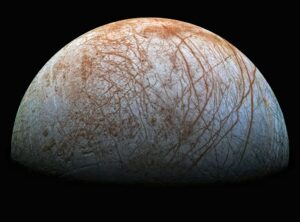What is the difference between physics and engineering?
Now engineering has all study branches but if you study physics you’ll likely start simply as a physics major where you’ll learn the foundations of various branches of physics, however, when you go to grad school there are many fields for you to get into that can lead to different areas of research. 1.
What are the pros and cons of majoring in physics?
Pro: Physics opens you up to a wide range of job fields. Engineering is also not less in terms of jobs, but if you look at the statistics, you will find that the laws of physics are used to understand engineering rules. You can also gain several foundations as a Physics major concerning the various branches within the field.
What are the drawbacks of being an engineering graduate?
Con: Engineering’s major drawback is that being a graduate is more on the subject you can’t start with the most exciting work that applies to a physics graduate as well. Some people work for companies but they start with very basic assignments that are not advanced research or design work that you want to do. I mean, maybe you start with that.
physics vs engineering degree
Should I major in physics or engineering?
No matter which country you are in, a degree in engineering will help you become financially better more than a degree in Physics. Having Physics as a minor will help you switch to academic research in Physics later on.
What can I do with a degree in physics?
Engineering is also likely your best bet of actually getting to use physics in the "real world", as part of your job. The amount of engineering jobs vastly outnumber the amount of physicist jobs. A lot of physics graduates end up working in other areas, such as finance, IT, teaching and the like,…
Should I become an engineer or a physicist?
Most physicists transition into engineering at some point. Studying physics will get you a taste of both in your life. If you go for engineering straight away you will never really experience true physics. Also physicists get employed pretty much anywhere. Wherever you find engineers you will find physicists behind the scenes.
physics vs engineering major
Should I major in physics or engineering?
So if you’re bigger on theory, go physics. If you’re bigger on application, go engineering. That being said, physics is still more math heavy (maybe 20% harder, much more calculus), although this can depend on the courses you pick. The best thing to do would be to ask to sit in on…
What is the role of Physics in engineering?
“Engineers are generally concerned with designing and/or making things that work. The engineers I know use a knowledge of physics to do so, but at the end of the day, their goal is not to probe the rules by which the universe operates.
What is the difference between a physicist and an engineer?
The main difference between the two that everyone seems to agree on is that Physicists study the universe and its laws, whilst Engineers create things using those laws as a guide. As Theodore Von Kármán said, “Scientists study the world as it is; engineers create the world that has never been.”
Can I go to graduate school in physics with eeee?
EE graduate programs typically accept students from a wide range of undergraduate backgrounds, including physics, math, computer science, statistics, etc. But to do grad school in Physics, you pretty much need to have a BS degree in Physics. I would look into what career tracks and skills look most promising.



